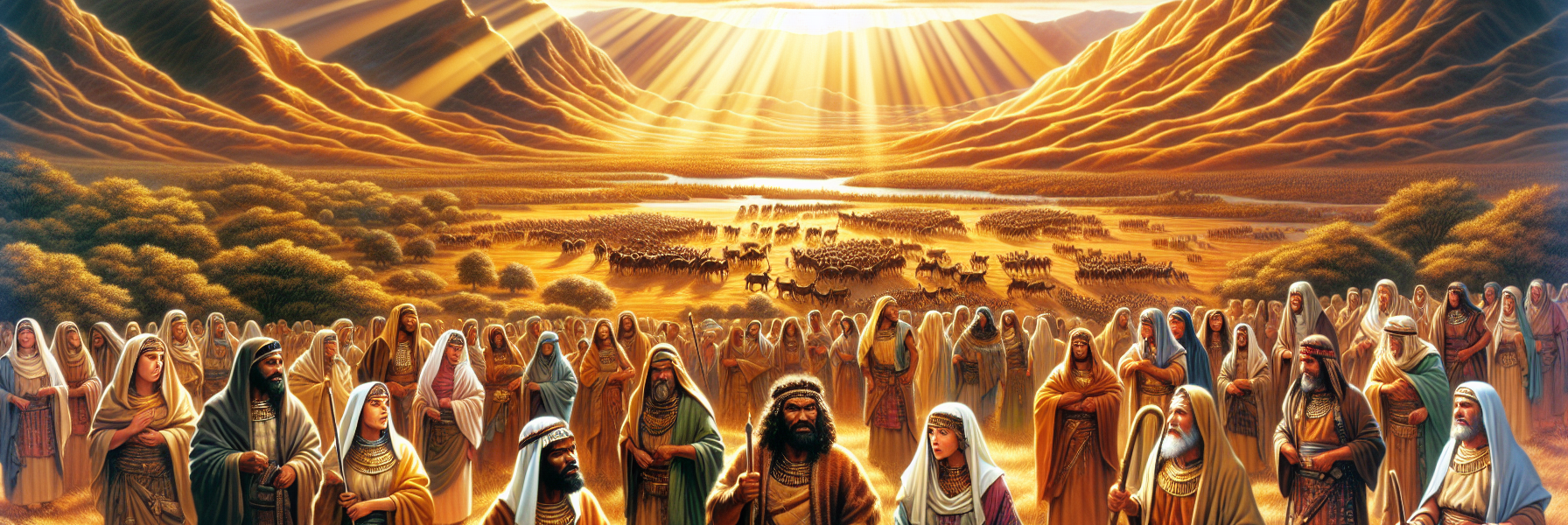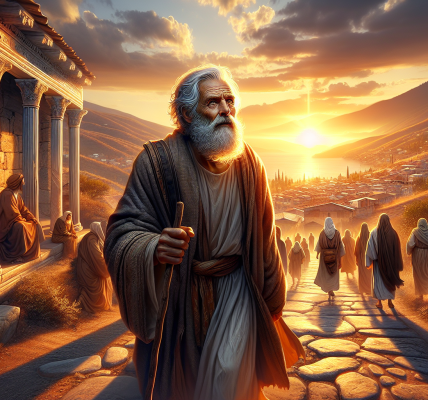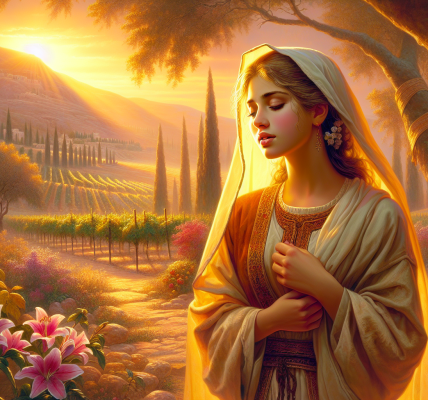**The Inheritance of Manasseh: A Tale of Faith and Perseverance**
The sun hung low over the land of Canaan, casting golden rays across the hills and valleys that stretched before the tribes of Israel. The time had come for the descendants of Joseph—Ephraim and Manasseh—to receive their allotted portion of the Promised Land. Among them were the clans of Manasseh, who stood before Joshua, son of Nun, and Eleazar the priest, eager to claim their inheritance.
### **The Daughters of Zelophehad**
Among the crowd stood five women—Mahlah, Noah, Hoglah, Milcah, and Tirzah—the daughters of Zelophehad, son of Hepher, son of Gilead, son of Machir, son of Manasseh. Their father had died in the wilderness, leaving no sons to carry his name. Yet these women were not content to be forgotten. Years before, they had boldly approached Moses, pleading for their father’s inheritance to pass to them rather than vanish from among their family.
Now, as the land was being divided, Joshua remembered the Lord’s decree through Moses: *”The daughters of Zelophehad are right in what they are saying. You shall surely give them possession of an inheritance among their father’s brothers and transfer the inheritance of their father to them.”* (Numbers 27:7).
With solemn reverence, Joshua turned to the assembly. “By the word of the Lord, these women shall receive their portion alongside their brothers. The land shall not be lost to their father’s line.”
And so, the daughters of Zelophehad were granted their inheritance—a portion among the tribes of Manasseh. The people marveled at the faithfulness of God, who upheld justice and honored the plea of these courageous women.
### **The Land of Manasseh**
The territory allotted to the tribe of Manasseh stretched across both sides of the Jordan. Some clans had already settled in Gilead and Bashan, east of the river, where the land was fertile and well-watered. But the western portion, within Canaan itself, was rich with forests, valleys, and fortified cities.
Yet as the leaders of Manasseh surveyed their inheritance, they saw that the Canaanites still held strongholds within their borders. The cities of Beth-shean, Taanach, Dor, Ibleam, and Megiddo remained unconquered, their iron chariots patrolling the plains.
### **A Plea for More Land**
The leaders of Joseph—both Ephraim and Manasseh—approached Joshua with a grievance. “Why have you given us only one allotment and one portion for an inheritance?” they asked. “We are a numerous people, and the Lord has blessed us abundantly.”
Joshua, his face weathered by years of battle and wisdom, studied them carefully. “If you are so numerous,” he replied, “then go up into the forest and clear land for yourselves in the land of the Perizzites and the Rephaim, since the hill country of Ephraim is too small for you.”
But the tribes hesitated. “The hill country is not enough for us,” they argued, “and all the Canaanites who live in the plain have chariots of iron—both those in Beth-shean and its villages and those in the Valley of Jezreel.”
Joshua’s eyes burned with the fire of a man who had seen the walls of Jericho crumble at the sound of trumpets. “You are a great people and have great power,” he said firmly. “You shall not have only one allotment. The hill country shall be yours, and though it is forested, you shall clear it and possess it to its farthest borders. And as for the Canaanites with their iron chariots—drive them out! For the Lord your God is with you, just as He promised.”
### **A Test of Faith**
The words struck deep. The tribes of Joseph had been given much, but they were hesitant to claim it fully. The forests were dense, the enemies formidable. Yet had not the Lord delivered giants into their hands before? Had He not promised them this land?
With renewed determination, the clans of Manasseh set to work. Axes bit into ancient trees, clearing pathways and carving out settlements. Warriors sharpened their swords, preparing to face the iron chariots of the Canaanites. The daughters of Zelophehad took possession of their inheritance, ensuring their father’s name endured.
And though the struggle was great, the promise remained: **”No man shall be able to stand before you all the days of your life. Just as I was with Moses, so I will be with you. I will not leave you or forsake you.” (Joshua 1:5)**
### **The Lesson of Manasseh**
The story of Manasseh’s inheritance was not merely about land—it was about faith. God had given them the territory, but they had to step forward in courage to possess it. The forests would not clear themselves. The enemies would not flee without a fight.
And so it is with the promises of God even today. He grants us blessings, but we must walk in obedience and boldness to claim them. For the Lord does not abandon His people—He goes before them, making the impossible possible for those who trust in Him.
And so, the tribe of Manasseh took their place in the land, a testament to God’s faithfulness—and a reminder that His promises are claimed not by hesitation, but by faith in action.




